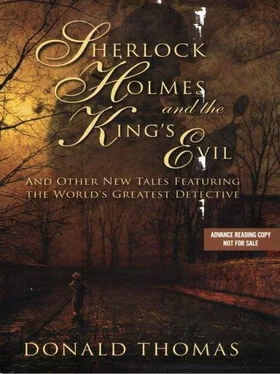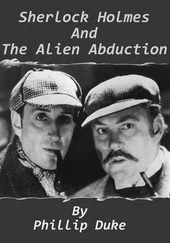What became known as the Zimmermann crisis followed almost at once. A neutral Danish observer, the captain of a coaster returning home from the port of Kiel, passed information to our naval attaché in Copenhagen. The talk among officers of the German High Seas Fleet was of U-boat production already reaching the level necessary to sustain unrestricted warfare by mid-January 1917, six weeks away. An unknown number of the new submarines had sailed from Wilhelmshaven with stores, fuel and torpedoes for three months.
“Which can only mean operations off the American coastline from Florida to Maine,” said Holmes quietly, “No commander-in-chief would send his vessels to the Bay of Biscay or the Western Approaches for such a length of time and with no available port. It may take them three or four weeks to cross the Atlantic. They will be in the American coastal shipping lanes by early January, counting on a base in Mexico.”
There had been German threats to United States shipping before this. When the British liner Lusitania was sunk with the loss of many American lives, it had been all that President Wilson could do to hold the country back. America ’s own ships, like the Gulflight and the Sussex, had fallen victim to U-boats but still a fragile neutrality persisted. So far, each crisis had passed after a protest by Washington.
Woodrow Wilson continued to urge the combatants in the war to find a peace without victory, a peace without conquest, for the benefit of mankind. In this, Holmes was his supporter, though for more practical reasons. He argued that in a general war a million young Americans might die, for the sake of paltry gains on the Western Front, compared with a few dozen or a few hundred in the submarine war. It was a high price to pay for national pride.
As the latest U-boats sailed from Wilhelmshaven, the German diplomatic ciphers revealed that Arthur Zimmermann at the Foreign Office in Berlin, had been assured by the Kriegsmarine that Britain could be starved into negotiation in six or twelve months by the new fleet. Those in Whitehall who believed that American arms could yet change the course of war began to lose heart. It was surely too late.
During that Christmas season of 1916 and into the New Year, Sherlock Holmes was a stranger in Baker Street. If he slept in his own bed, he was gone before breakfast and absent until after midnight. Often he slept on a camp bed at the Old Admiralty Building, in a shabby panelled office allotted to him by Signals Intelligence. When grander accommodation was offered, he declined it. He worked alone in his “cubby hole” and there was little sign of him elsewhere in the building. The departure of the U-boats on their voyage kept our wireless interception busy day and night with ciphers to be decoded.
The New Year brought us the freezing January of 1917. I had taken three days leave to go alone to the Exmoor cousins at Wiveliscombe. I returned to Baker Street very early one morning, before the office workers were at their desks. An overnight sleeper had brought me on the train from Taunton to Paddington. There was no sign of Holmes in our rooms. It appeared as if he had not been in the house since my departure. I summoned Mrs Hudson.
“Why, Dr Watson, sir, I thought he must have gone down to Devon with you, after all. There’s been no sign of him here since you left.”
I called a cab off the rank and set off at once for Whitehall. If Holmes had been away for three days and two intervening nights, it must be at Room 40. When I arrived, only those who had been on watch since the day before were still there and the new watch had not yet taken over. I went to the Watchkeeper’s Office. Here the printed intercepts arrived through pneumatic tubes. A row of clocks told the time across the world from London to New York to Tokyo and back to Berlin. Closed circuit telephone lines ran to the Director of Naval Intelligence, the War Office, Special Branch at Scotland Yard, and the Prime Minister in Downing Street. The waste-paper baskets were usually full of pages, crumpled and discarded during the long night, all of which would be emptied into the Horse Guards incinerator by Royal Marine sergeants.
As a rule, several of the night watch would sit at their desks until 10am. In the morning light, their faces were pale from exhaustion and drawn from lack of sleep, eyes staring unnaturally bright from the dark shadows of their sockets. Even then, if necessary, they would wrestle for several hours more with some new naval or diplomatic cipher which had been changed at midnight in Berlin or Vienna.
This morning, Holmes was in the Watchkeeper’s Office alone. He sat in a wooden chair, the desk before him clear, head back, arms folded and eyes closed. Yet he was not asleep. His eyelids lifted as I came in.
“Where are the others?” I asked.
“They have gone,” he said wearily, “There was no purpose in staying. They had no work to do.”
“And the ciphers?”
“They have vanished.” He stood up. “The diplomatic ciphers between Berlin and Washington, that it is say everything that matters in the present state of affairs, have disappeared from the ether. So far as we are concerned, they are neither being sent nor received. There have been no intercepts for the past two days.”
I stared out of the window, across the mist of St James’s Park where two Jersey cows were grazing on the frosted grass that stretched between us and Buckingham Palace. I tried to make sense of what he had just said.
“Surely the signals are being sent. Now, of all times, when Wilson and Zimmermann are trying to avoid war. Zimmermann must be in contact with Bernstorff and their Washington embassy.”
Holmes sighed.
“Not through his own signals. Negotiations between the two countries are at a delicate stage. The last messages that we received merely confirmed that Chancellor Bethmann-Holweg had agreed to consider President Wilson’s fourteen-point proposal for a general peace on all fronts. I have a private assurance of that, from Edward Bell at the American Embassy. Bell tells me in confidence that President Wilson authorised the use of America ’s own diplomatic telegraph for transmission of German peace proposals in code.”
“And what of the U-boat fleet heading for the American coastline?”
“So far as we are concerned that has vanished off the map. So far as the Americans know, it never existed. For a time, it was communicating through Sayville, Long Island, disguised in the codes of commercial or steamship company telegrams. That has ceased.”
“How will Berlin ’s signals carry to Washington?”
“During the present negotiations, Zimmermann has requested that his own telegrams to Robert Lansing at the State Department shall be transmitted from Berlin with those of the American Embassy, in the American diplomatic code. The route is through neutral cables from Berlin to Stockholm, then to Buenos Aires and so to Washington. Wilson ’s Ambassador in Berlin, James Gerard, has agreed.”
“To transmit German diplomatic intelligence? Preposterous!”
“Perhaps. However Gerard and Secretary Lansing have accepted this, apparently on Wilson ’s instructions. Still worse, they have accepted Zimmermann’s insistence that his telegrams to Bernstorff must be transmitted by the Americans in the usual German diplomatic code-undeciphered-so that they remain confidential to Bernstorff. These telegrams are forwarded, unexamined, from the State Department to the German Embassy. Lansing and Wilson have no idea of the contents. Negotiations between the two countries are too delicate to permit the risk of interception in London or elsewhere.”
“It is unthinkable!”
“So is war,” said Holmes gloomily, “To Wilson, war is an abomination. If he can end it, why not allow Zimmermann this small concession? Zimmermann must send diplomatic telegrams to his ambassador in Washington anyway. Wilson does not want the British or the French eavesdropping at this point.”
Читать дальше












